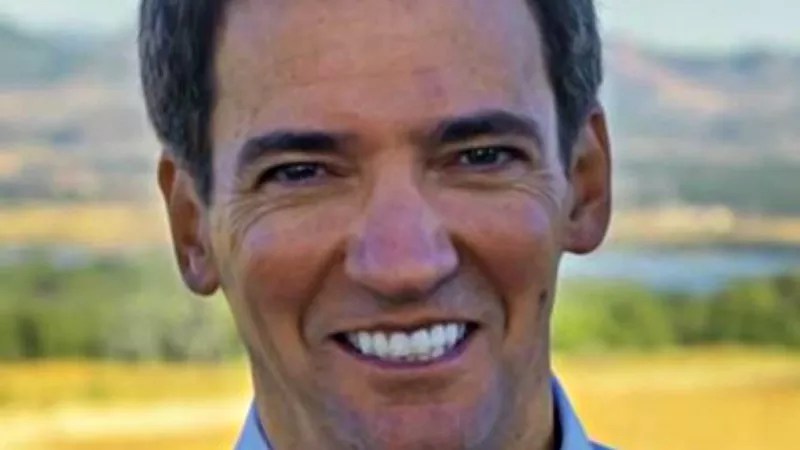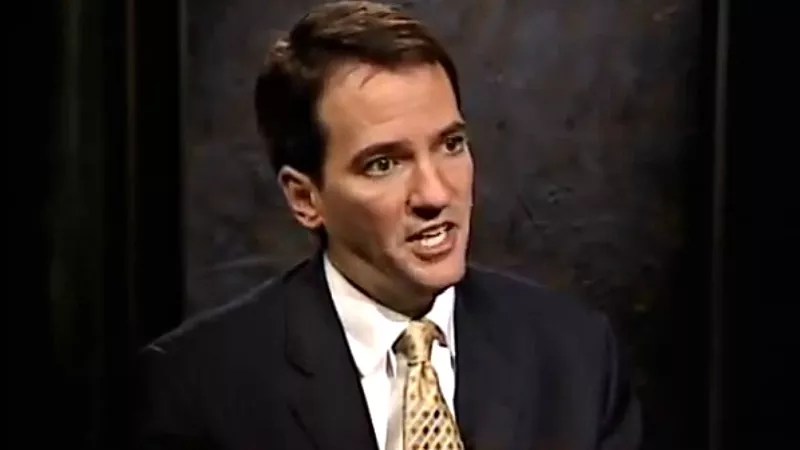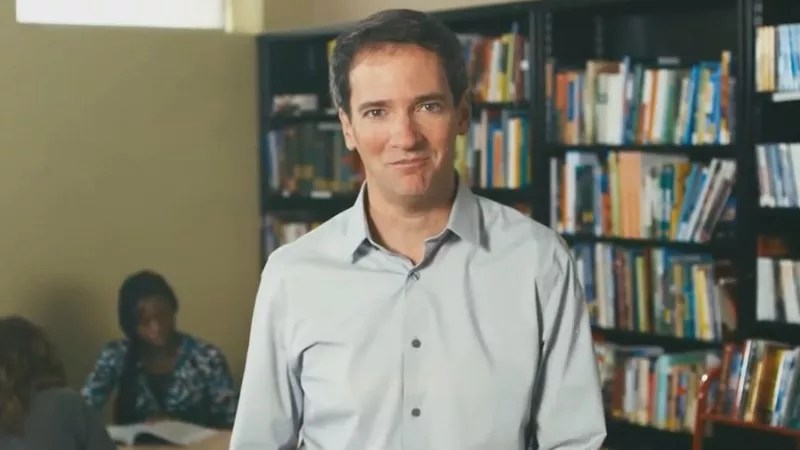

Audio By Carbonatix
Losing to Mike Coffman in the 2014 race for Colorado’s 6th Congressional District was tough for former Democratic state speaker of the house Andrew Romanoff, who’s just announced his 2020 candidacy for the U.S. Senate seat currently occupied by Cory Gardner. But it was nothing compared to what happened just over a month later.
“Four years ago, I lost a young woman to suicide who I thought of as my kid sister,” Romanoff says. “She was actually my first cousin. Her mom and dad and I are very close, and the four of us were celebrating New Year’s 2015 when she walked into the back yard and killed herself.”
This is “one of many memories I’d like to erase, but I can’t do that,” he acknowledges. “I’ve spent every day since then and I’ll spend the rest of my life wishing I could have saved her.”
Romanoff subsequently became president and CEO of Mental Health Colorado, and during his time in that role (from which he’s just stepped down), he “traveled across the state to advance the cause of mental health for families, including those that have lost loved ones to drug addiction or to suicide, as I did,” he notes. “I’ve probably talked to 10,000 people a year at Rotary clubs, churches, synagogues – and I’ve talked about my cousin every night.”
According to him, the resulting conversations with people who can identify with this tragedy all too well “reminded me about what’s at stake in this election. And I realized I couldn’t sit back and watch the country be torn apart. I wish we had more folks in Congress who understood the struggles that so many of their constituents are suffering. That’s why I ran for the office in the first place, and it’s why I’m running for the Senate now.”
He’s hardly alone. Former state senator Mike Johnston is the highest-profile entry to date, but Denver’s Lorena Garcia, Grand Junction’s Keith Pottratz and Superior’s Trish Zornio have declared, too – and given the perception that Gardner is vulnerable in the wake of the blue Democratic wave that swept over Colorado last November, it’s unlikely they’ll be the last.

Andrew Romanoff during his U.S. Senate run in 2010.
KBDI via YouTube
A crowded field will ratchet up the degree of difficulty for Romanoff, whose four years out of the political spotlight was preceded by two defeats in high-profile contests: He was bested by Michael Bennet in the 2010 Democratic senatorial primary prior to his 2014 Coffman shortfall. And then there’s the toll associated with such an undertaking.
“Running for office is a labor of love except for the ‘love’ part, sometimes,” he jokes. More seriously, he says, “When you put yourself on a public stage, you invite attacks, and it’s not pleasant. But the things I feel most passionate about – people who’ve lost everything, lost jobs, homes, savings, loved ones, people who’ve really struggled and suffered – makes the hits you take in the course of a campaign seem like nothing. The question you have to ask is: Do you believe you can make a difference, and would that make the personal sacrifice you might expect worth it? And that’s a pretty easy question for me to answer.”
So, too, are inquiries about the political gulf between him and Gardner.
“I served with Senator Gardner in the House for four years,” he points out. “But I disagree with him on virtually every area of public policy.” For one thing, Gardner “voted to slash Medicare. I think we ought to expand Medicare to everyone,” thereby creating a single-payer system. The pair diverge as well on the Green New Deal, an economic stimulus package whose most prominent advocate is New York Representative Alexandria Ocasio-Cortez. While Gardner “dismisses it as a lot of ‘red tape,’ in his words,” Romanoff feels “it’s the last, best chance we have to rescue our planet.”
Furthermore, he goes on, “Senator Gardner has showered millions and millions of tax dollars on those at the top,” he charges. “I believe we’ve got to provide a leg up for those in the middle or at the bottom.” And he castigates the senator for “participating in the sort of pay-to-play politics that has eroded public faith in the system.”
Still, Romanoff insists, “I’d like to spend the next twenty-odd months or so listening to the people I’d like to represent, not just talking about Cory Gardner.”
The topics he’d like to discuss with them include the environment. “Even by the Trump administration’s own estimate, we have about a dozen years left to de-carbonize the economy,” he maintains. “That means replacing fossil fuels with renewable energy. It also means helping people get jobs in this new energy economy – and the good news is, there are more jobs to gain than to lose, especially in Colorado, which has been taking the lead on this front.”

Andrew Romanoff as seen in an ad for his 2014 congressional campaign.
In his view, “We don’t have to choose between protecting our environment and growing our economy. That’s a false choice. We can do both. Colorado is demonstrating that. But we need to make sure that people who stand to be dislocated in the middle of this shift get the support and training and skills they need to get new jobs. I don’t want anybody to be treated as collateral damage as we shift from fossil fuels to renewable energy. But at the same time, people are dying across the world from the effects of carbon pollution. There’s a clear impact not only on the environment, but on public health, especially in low-income communities, which are some of the chief casualties of carbon pollution.”
Another issue “that’s near and dear to me,” he says, “is immigration reform. I wouldn’t be here – not just in Colorado, but in America – if this country hadn’t opened its doors to my mother and all four of my grandparents, who were all born outside the United States. I’m glad we’re here, and we’re better off not just as a family, but as a country because we have welcomed people from other lands to contribute their talents to America. I want to preserve that tradition and provide a path to citizenship for folks who are willing to work hard. This president takes a very different view.”
Additionally, Romanoff advocates for red-flag laws intended to keep people deemed to be a danger to themselves and others from possessing weapons (he worked on unsuccessful legislation at the state level on this subject while with Mental Health Colorado) and campaign-finance reform, which he considers a tool to solve a slew of entrenched problems. “One of the reasons we haven’t gotten the changes we need in health care or climate change or virtually any other issue is because we’ve allowed corporate interest groups to bankroll Congress. They don’t do it out of the goodness of their hearts – and technically, they don’t have hearts, despite what the Supreme Court might say. They do it because they expect to get something in return. And they do.”
As such, he’s decided to “turn down contributions from special-interest groups. We’re running a grassroots campaign because I believe it’s a better way to win and to govern.”
Not that Romanoff is naive about the resources that will be necessary to defeat Gardner. Fellow candidate Johnston has called the senatorial contest the most important in the country, and its significance is guaranteed to attract big money on both sides, as he concedes. “I don’t want to suggest we can do this by shoe leather alone. We’re signing up volunteers on our website as we speak, and we’re going to ask people to contribute. And if you look at some of the other Senate races around the country, Beto O’Rourke [who lost to Texas Senator Ted Cruz last November] raised upwards of $80 million using the same approach that I’m proposing – getting people to chip in.”
To inspire such donations, “you have to have a strong message – and I believe we do,” he says. “And you have to have a persuasive messenger. And I hope to be that.”